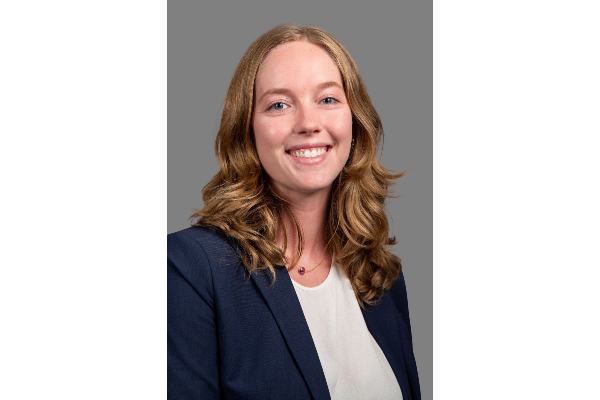First Year PA Student Blog: Helen Gaynes

Helen Gaynes PA-S
“Inclusion is within everyone’s ability level.”
March is disability awareness month - a time for recognition that I hold dear to my heart.
Before Physician Assistant (PA) school, I worked at a physical therapy clinic as a medical fitness specialist for adults with intellectual and developmental disabilities. The physical therapy clinic is located on a farm in the foothills of the Blue Ridge Mountains, where this population lives alongside caregivers in a unique life-sharing community. During the pandemic, I became a more intimate part of the farm community, moving onsite to be able to provide care to my clients. I lived there for over a year, where I learned more about myself, health care, and serving this population than I ever thought possible. In particular, I learned certain principles that apply to caring for all our patients. These include:
- People are the experts of their own lived experiences. Take the time to understand others’ experiences to better care for them; don’t assume that you know what will work best for them. Take patients’ input and work together. You are a team!
- Whenever possible, be eye-level when talking with your patients. Such a subtle action can show a huge amount of respect and make a big difference in a patient’s experience.
- It’s important to confirm your patients’ understanding of their healthcare plan. Individuals have different learning preferences, and sometimes plans need to be described in a different light. Don’t hesitate to utilize pictures when needed! Creativity can be one of a provider’s biggest assets.
- Consider the social determinants of health whenever possible in the designing of a patient’s plan. These include the environment and conditions that people grow up and live in, as they impact overall health and the accessibility of certain health care plans. Asking questions like “what transportation do you use to get to your appointments?” can identify potential transportation barriers that you as a provider can consider when planning their next appointment.
- Take the time to find out what is important to your patients and engage with them about it. Even a sentence or two inquiring about their family, their goals and hobbies, the progress of their flower book, or new additions to their mandala collectioncan let your patients know that you really care and are paying attention to what they value most.
I loved my time working as a medical fitness specialist and I will continue to seek out opportunities to provide evidence-based holistic care when serving all patients, especially those who require a little more patience, time, and care. At Duke, we have an upcoming class on (dis)ability and wellness, followed by an adaptive sports experience later in the month. I am eagerly looking forward to both sessions and the chance to learn alongside and from my classmates. After being a student here for more than eight months, I am proud to attend a program that encourages conversations about how we can broaden our thinking about health, create the most inclusive environment possible, and consider how “healthy” can look different for different people.
Disability awareness month is a month to be celebrated through compassion, conversation, and education. Remember, people are the experts of their own lived experiences. As a provider, you are on your patient’s team, and teamwork is imperative when designing successful health care plans.
Helen Gaynes is a first-year student with the Duke Physician Assistant Program. Email helen.gaynes@duke.edu with questions.
Editor’s note: Duke Physician Assistant Program students blog twice a month. Blogs represent the opinion of the author, not the Duke Physician Assistant Program, the Department of Family Medicine and Community Health, or Duke University.